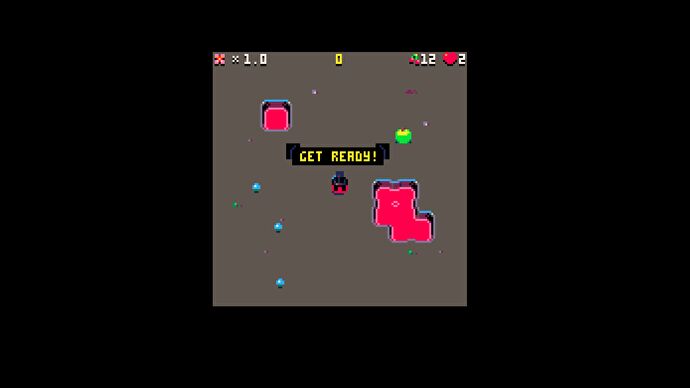GameStop’s NFT marketplace sold games without developers’ permission

An NFT minter using the GameStop marketplace has admitted to minting developers’ games without their consent or knowledge. The games, which are freely available on itch.io, were sold several hundred times before GameStop delisted them, and continue to exist on GameStop’s servers regardless of the wishes of the original creators.
As reported by Ars Technica, the NiFTy Arcade was a bit different from most of the NFTs on offer in GameStop’s marketplace, selling the ability to access certain games from one’s wallet, rather than (receipts for) JPEGs. However, these games weren’t made by the person minting them, and the actual creators had not given permission for them to be used in this way.
The games, made in the (excellent, undeserving of this mess) Pico-8 engine, include Worm Nom Nom and Galactic Wars, both of which were and remain freely playable on the developers’ itch.io pages.
The person who minted them as NFTs, Nathan Ello, was selling them for 0.019ETH (about $23/£19) and 0.052ETH (about $63/£52) respectively. The advantage of making this purchase over playing them for free, according to Ello via Ars, was “the convenience of playing the game directly from their wallet or their own profile page on the marketplace without having to navigate to mine.” This was apparently reason enough for hundreds of purchases, earning Ello a reported 8.4ETH (about $14,878/£12,270) in primary sales and 4.67ETH (about $8,271/£6,822) in secondary sales. GameStop would also have received marketplace and commission fees on these transactions.
Ello admitted to Ars that he minted the games without the developers’ permission. At least one of the games, Worm Nom Nom, was listed under a Creative Commons license that prohibits commercial usage.
The games were removed from GameStop’s NFT marketplace, but Ello reportedly still has the cryptocurrency he received from selling them, and both Nifty other Ello still have active accounts on the marketplace.
The NFTs which were sold can also continue to circulate on other marketplaces as well as being accessible on GameStop’s servers via cached copies and owners’ crypto wallets, regardless of the wishes of the original developers. Pico-8’s creator Joseph White has issued a DMCA takedown request to GameStop, but even if the directly hosted copy is deleted from their servers, it may still be accessible thanks to their usage of the Interplanetary File System standard, which hosts copies of uploaded files across several server nodes. GameStop’s own FAQs state that if an NFT is suspended for, say, DMCA reasons or being in violation of Terms of Service, “you still have full ownership of it and it is still accessible to you.”
This isn’t the first time that GameStop have delisted an NFT from their marketplace, which launched just a couple of months ago. Recently they removed an image based on a 9/11 victim, as reported by PC gamers. Neither is it the first time that a Web 3 project has used games without the developers’ permission. Back in June a site calling itself w3itch.io took source code and games hosted on the real, anti-NFT itch.io without consent from itch or the games’ creators.
I could go on, but Web3 is going great already reports on everything happening in the space, all with helpful tags like “art theft,” “environment,” and “Yikes.”
Reference-www.rockpapershotgun.com